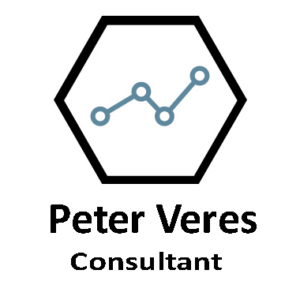A Comprehensive Guide On Choosing The Right Business Consultant Agent
In today’s fast-paced business world, seeking guidance from a business consultant agent can be a valuable investment for your company’s growth and success. A skilled and experienced business consultant can provide expert advice, identify opportunities, and help you overcome challenges. However, with numerous options available, it can be overwhelming to choose the right consultant agent for your specific needs. This article aims to provide a comprehensive guide on how to choose a business consultant agent that aligns with your goals and maximizes your chances of achieving success.
- Define Your Objectives:
Before embarking on the search for a business consultant agent, clearly define your objectives and what you hope to achieve through their assistance. Determine the specific areas of your business where you need guidance, such as strategic planning, marketing, operations, or financial management. This clarity will help you narrow down your options and find a consultant with expertise in your desired areas. - Assess Experience and Expertise:
When evaluating potential consultant agents, pay close attention to their experience and expertise. Look for consultants who have worked with businesses similar to yours or within your industry. Assess their track record of success, case studies, and client testimonials to gauge their effectiveness in delivering results. A consultant with a deep understanding of your industry will bring valuable insights and strategies to the table. - Check Credentials and Certifications:
Ensure that the consultant agent you are considering has the necessary credentials and certifications. Look for recognized qualifications in business consulting, such as certifications from reputable institutions or memberships in professional associations. These credentials provide assurance of their competence and commitment to professional standards. - Evaluate Communication and Interpersonal Skills:
Effective communication is crucial for a fruitful consultant-client relationship. During the selection process, assess the consultant’s communication style, listening skills, and ability to clearly articulate ideas. They should be able to understand your business challenges and goals while effectively conveying their recommendations. Additionally, interpersonal skills such as empathy, adaptability, and collaboration are vital for fostering a strong working relationship. - Seek Recommendations and Referrals:
Leverage your professional network to seek recommendations and referrals for business consultant agents. Reach out to industry peers, business associations, or mentors who have previously engaged with consultants. Their firsthand experiences and insights can provide valuable guidance in selecting a reputable consultant. Additionally, conduct online research and read reviews to gather more information about the reputation and performance of potential consultants. - Consider the Consultant’s Approach and Methodology:
Different consultants may employ various approaches and methodologies. It is important to understand how they work and whether their methods align with your company’s culture and values. Some consultants may focus on data-driven analysis, while others may emphasize a more holistic or creative approach. Choose a consultant who can adapt their methods to suit your business needs and preferences. - Discuss Fees and Expectations:
Transparent discussions about fees and expectations are essential to avoid any misunderstandings later on. Inquire about the consultant’s fee structure, whether it is based on an hourly rate, project-based, or a retainer fee. Clarify the expected deliverables, timelines, and the level of involvement required from both parties. This will ensure that both you and the consultant have a clear understanding of the scope of work and can align your expectations accordingly.
Selecting the right business consultant agent can be a critical decision that significantly impacts the success of your business. By defining your objectives, assessing experience and expertise, checking credentials, evaluating communication skills, seeking recommendations, considering their approach, and discussing fees and expectations, you can make an informed choice. Remember that a successful consultant-client relationship relies on open communication, trust, and shared goals. With the right consultant agent by your side, you can navigate challenges, unlock opportunities, and propel your business toward sustainable growth.
